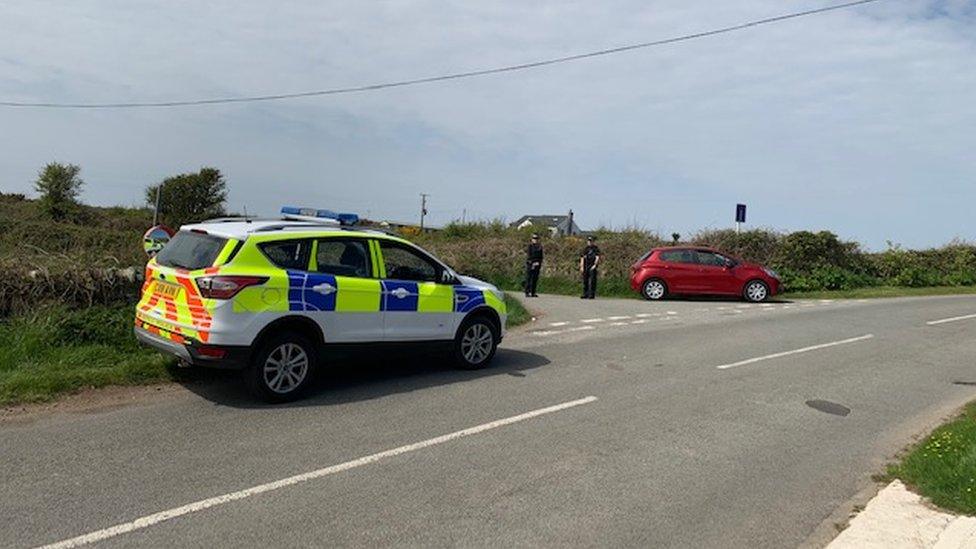Anglesey crossbow murder: Why was Gerald Corrigan killed?
- Published
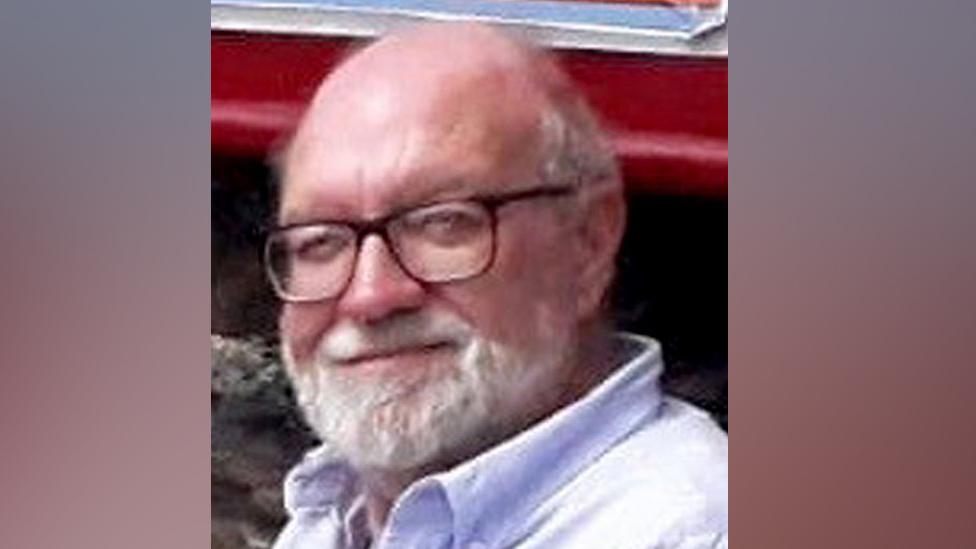
Gerald Corrigan initially thought he had suffered an electric shock from the satellite dish and asked his partner to call an ambulance
When hearing her beloved dad had been the victim of a midnight crossbow shooting at his remote coastal home, Fiona Corrigan could not believe it.
The killer of nature-lover and retired photography lecturer Gerald Corrigan was given a life sentence, but four years on Fiona still has one question.
"My father was hunted and nobody knows why on earth that happened," she said.
"And somebody chose not just to kill him but with a weapon that people use to hunt large game. My dad was hunted."
Detectives found no clear motive, no financial incentive and, crucially, no forensic evidence in the search for the 74-year-old's killer in north Wales' biggest murder hunt this century, one that included a witness plea from the prime minister.
Police finally caught the man that fired the high-powered crossbow as his in-car GPS, Amazon orders and mobile phone tracking put fitness instructor Terence Whall in the frame.
Whall denied murder, telling police en route to the police station: "How can I be under arrest of conspiracy to murder someone I'd never met?"
But he was convicted and sentence to a minimum of 31 years for killing the man known to his friends and family as Gerry.
Crossbow Killer podcast
Fiona, 50, is still coming to terms with her dad's gruesome death.
He was shot while fixing his satellite dish outside his Anglesey home on Good Friday in 2019, and the motive is still a mystery.
Speaking to BBC Sounds podcast The Crossbow Killer in an exclusive interview, she said: "There are so many questions. Why on earth has this happened? How could this happen?"
How Gerry Corrigan's killer was caught by his digital footprint
"He was such a good laugh and so intelligent, you could talk to him about so many different things. It's just so sad and sometimes I feel like crying and other times I just feel really angry.
"It's never far from my mind. It's so sad his life has just been stolen."
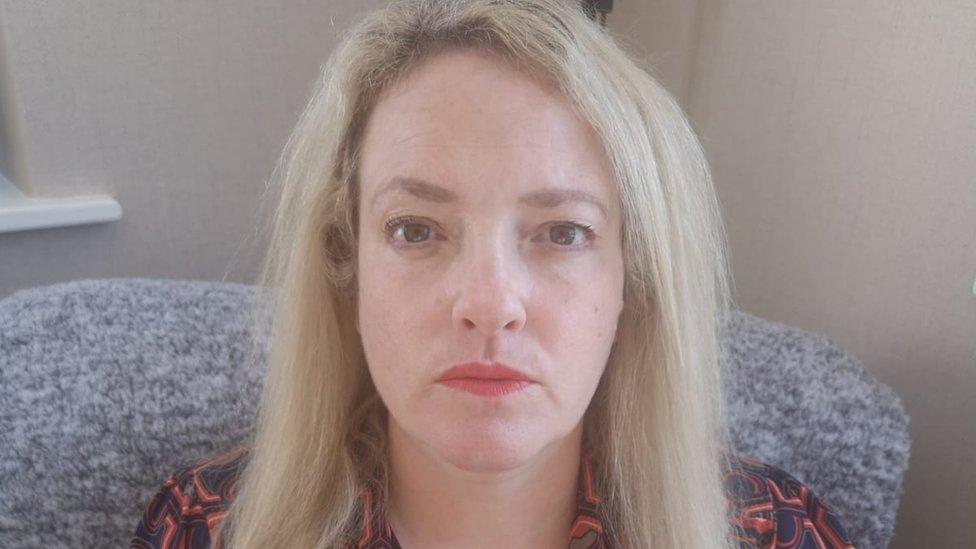
Fiona Corrigan used to enjoy walking the coastal path and painting the rugged landscape with her dad on her trips to Anglesey
The father-of-two was shot at close range while attempting to fix his ground-level dish outside his pebble-dash cottage overlooking the Irish Sea, a few miles from Holyhead on Anglesey in north-west Wales.
The 20in (50cm) razor-sharp crossbow arrow went straight through Gerry's body causing catastrophic injuries - damaging his spleen, large intestine, stomach, liver, colon, diaphragm, heart and arm - that paramedics compared with those sustained at serious road crashes.
'I need to get to hospital before dad dies'
"I first heard when my brother called at seven in the morning and he said slowly and clearly 'Fiona you have to get up now, get dressed because you need to get to the hospital because dad has been shot'," she said.
"You've got to get up now because he is still alive and we might lose him. I remember the drive to the hospital was like an out-of-body experience."
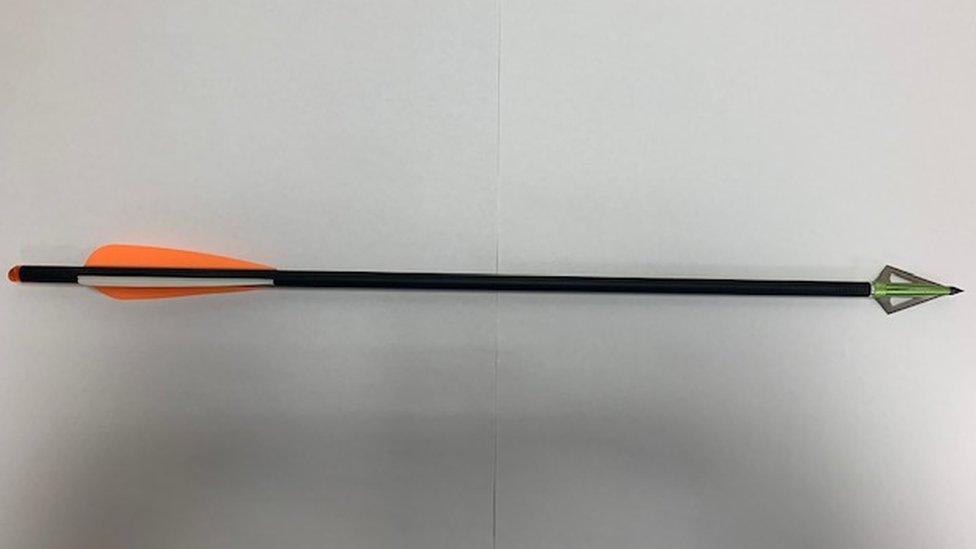
Gerry was killed by a crossbow broadhead arrow, similar to the one in the picture, that went straight through his body and damaged several major organs
"It was an awful drive, it took so long I thought I'd never get there and all I thought was 'I need to get to hospital before my dad dies'."
Fiona did get there but because of the severity of his injuries, Gerry was moved from his local hospital in Bangor to the major trauma unit in Stoke, where he died three weeks later.
Even though he had lived on Anglesey since the mid-1990s, Gerry knew very few people locally and had a very small circle of friends, let alone knowing someone who would want him dead.
"I couldn't help wondering why someone dad had never mentioned would want to murder him," added Fiona. "I couldn't understand how they could be connected to dad.
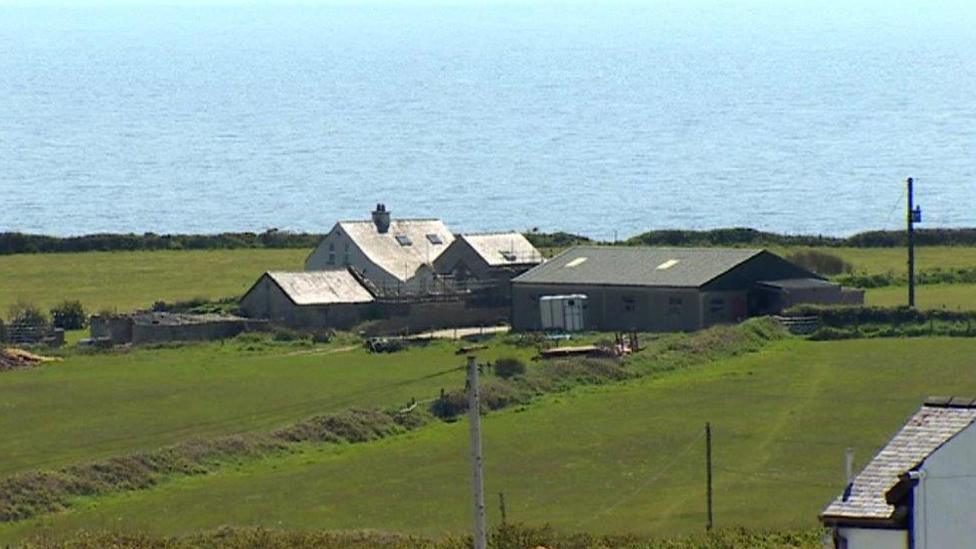
Gerry's remote home on Anglesey overlooked the Irish Sea and was about half a mile from his nearest neighbour
"If you spoke to him he was chatty," said Fiona. "But he also loved his own company and the remoteness of Anglesey really appealed to him because he could lose himself in nature."
In their search for Gerry's killer, detectives spoke to Whall before he became a suspect as he was one of 17 people on Anglesey to have bought a crossbow in the previous 10 years from the UK's largest crossbow supplier.
Whall however, had the perfect alibi because his new £750 Excalibur 355 crossbow was not delivered until after Gerry was shot, plus it was still in its original wrapping when police called at his house in Bryngwran, about 20 minutes drive from the murder.
But eyebrows were raised when he voluntarily told detectives he had owned another crossbow but sold it for cash months earlier for £180 to a passing stranger who had apparently seen him outside his property with the weapon.
Police were suspicious as he also lived in a remote house with little passing traffic and Whall said the buyer drove a blue Vauxhall Cavalier, a car these days rarely seen on the road because it was discontinued in 1995.
But police still had no evidence or motive on Whall, just a hunch.
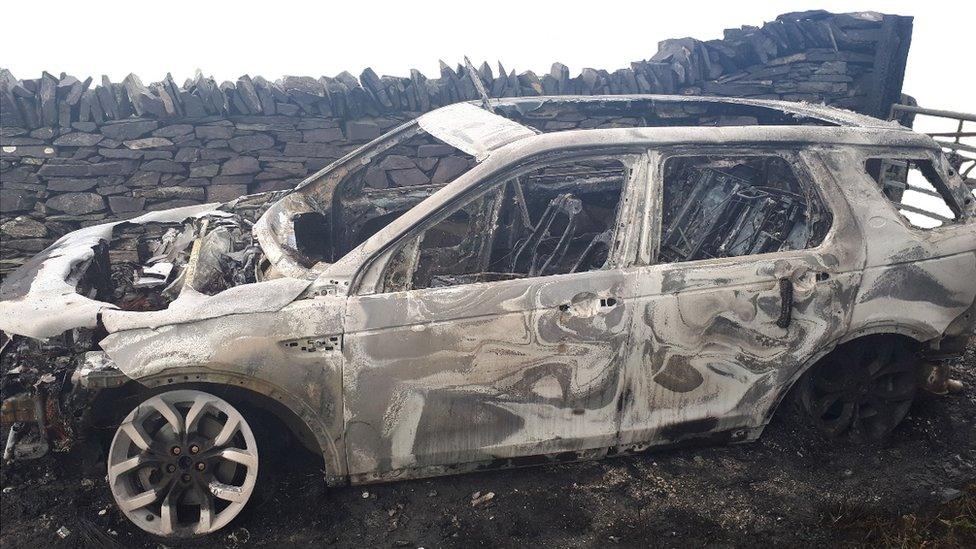
This Land Rover, belonging to Whall's partner, was found burned out on the outskirts of Bangor
He became prime suspect weeks after being first interviewed by police, when a Land Rover Discovery randomly found burned out near Bethesda - a 25-minute drive from his home - was traced back to Whall's address because it belonged to his partner.
His girlfriend had been on holiday at the time of Gerry's murder so Whall was the only one who had access to the high spec vehicle that was less than a year old.
Analysis of the Land Rover's telematics - a location-tracking SIM card - revealed it had parked at Porth Dafarch beach, a short walk from Gerry's home near the Anglesey coastal path at the time of the murder.

It is one of the UK's most callous and brutal killings - and there's no motive and no explanation.
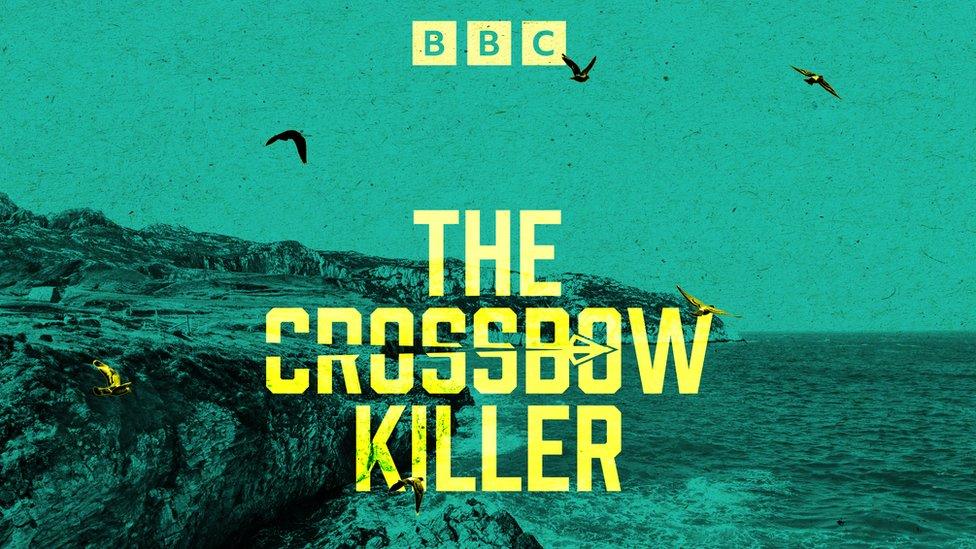
Tim Hinman narrates The Crossbow Killer podcast on BBC Sounds about a murder and its investigation that was stranger than fiction.

Whall's digital footprint also revealed he had bought the identical crossbow arrow tip and bolt to the one that killed Gerry on Amazon in two separate orders a few weeks before the murder.
His Amazon order history also highlighted that he was only one of two men that had ordered that specific combination of crossbow arrow tip and bolt - and the other man was quickly discounted.
Needless to say, when the police eventually searched Whall's home, there was no sign of any of these bolts or broadheads - he had got rid of them.
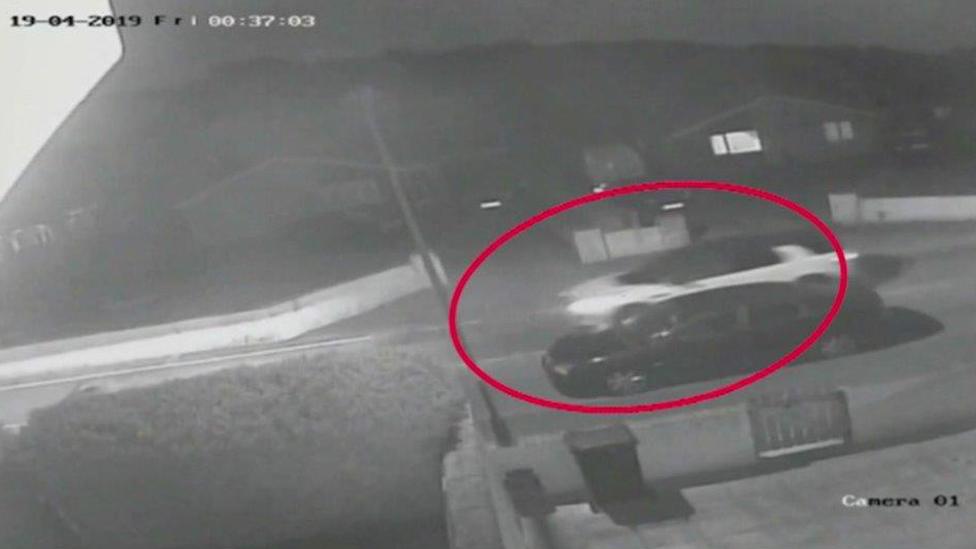
Once police had found car and phone location data from the night of the murder, detectives then found CCTV footage of the Land Rover near the murder scene
His mobile phone data also placed him near the home Gerry shared with his partner Marie Bailey on the night of the murder, despite Whall changing phones after the killing in a failed attempt to cover his tracks.
Whall told police he was having sex with former client Barry Williams in a field next to the victim's clifftop home but that alibi was dismissed by Mr Williams.
At his five-week trial, prosecutors said Whall tampered with Gerry's satellite dish and hid in wait to carry out the medieval-style killing as he was jailed for a minimum of 31 years at Mold Crown Court.
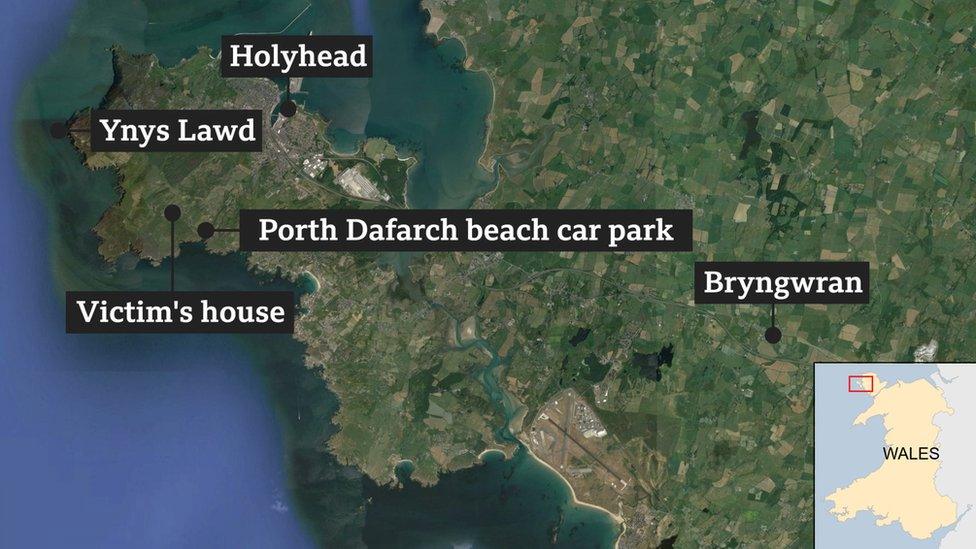
Car and phone tracking placed Whall, who lived in Bryngwran, near Gerry's house down the road from Ynys Lawd South Stack lighthouse and Holyhead
"Being in the same room as the man who murdered my father was just awful - it made me go cold inside," recalled Fiona.
"I was having panic attacks I was worried I'd have a panic attack in court and everyone would be looking at me and I'd have to leave the court. It was a horrible time.
"I was worried about what it would be like hearing the details of what happened to my dad - and if I could cope listening to it. But I wanted to represent my dad."

More BBC true crime stories:

She added: "I am left with the just so many lovely, happy memories. I spent a lot of time with my dad over the years and every day for him was like a new adventure. He had a thirst for knowledge and enthusiasm for life."
Prosecutors admitted without the Land Rover's "black box" location technology, Whall might have got away with murder - but Fiona still does not know why her dad was killed.
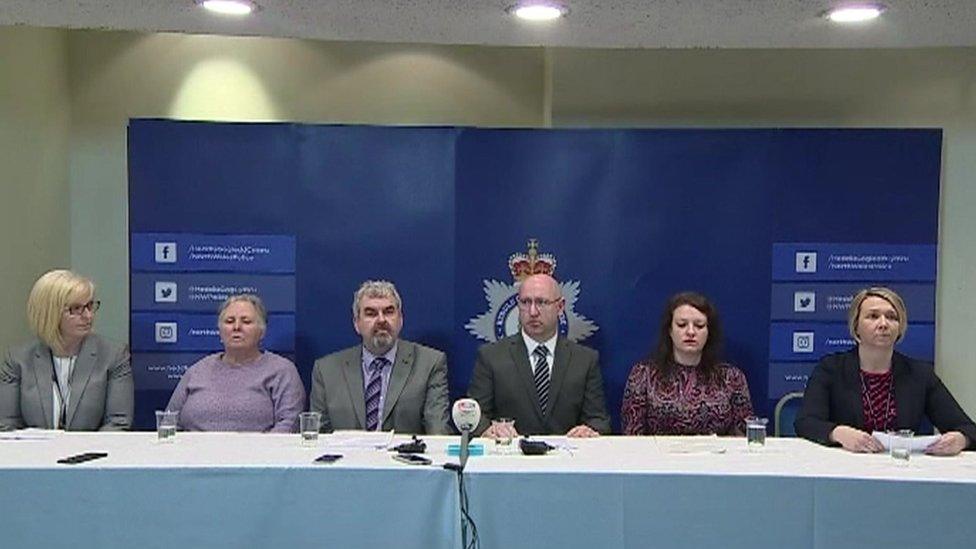
In Fiona's impact statement after Whall's trial, she the "worst thing of all is knowing that I won't ever get to hug my dad again"
His trial heard Whall was £50,000 in debt, but denied he killed Gerry for money and police found no evidence of a financial motive.
Gerry moved from Lancaster to his remote home on Anglesey to be closer to nature after taking early retirement aged 50 as a video and photography lecturer at a college in Blackpool.
Fiona recalled her dad as a quiet and placid man who had a love for painting, photography, museums, galleries, gardening, reading, current affairs and history.
She said the former Manchester polytechnic teacher was a "nocturnal, night owl" that stayed up into the early hours watching documentaries or looking at his photos.
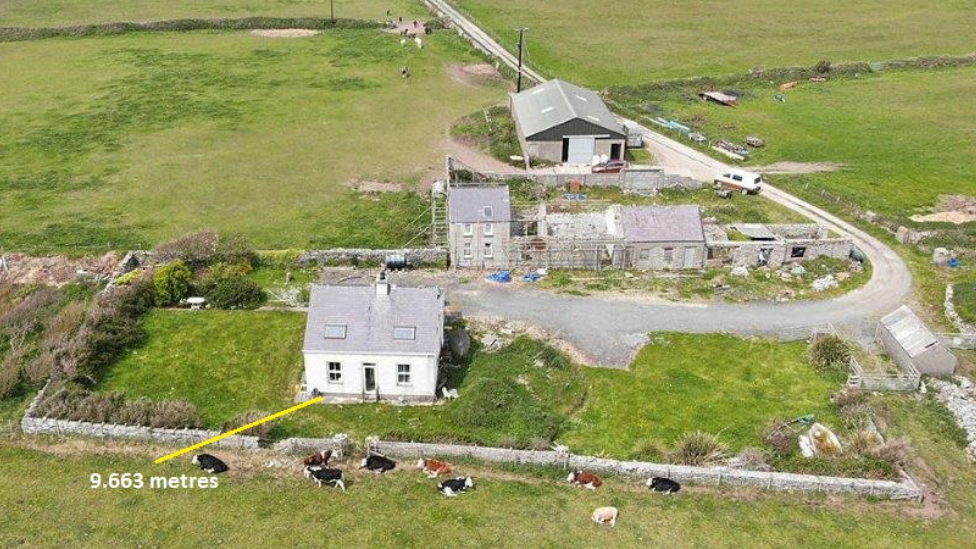
This image of Gerald Corrigan's house shows where North Wales Police believe the shooter was positioned
"I've not just lost my dad but so many people have have lost a person that they can learn from," added Fiona. "He was so knowledgeable about so many different things.
"The guys that used to go fishing with him said every time they saw him, they'd learn something new because he had just have so much life experience and so much knowledge.
"That's all been robbed and is a loss, not just to everyone else but to him because every day is a day where he couldn't learn and grow and do the things that he enjoyed doing.
"He was such a very nice man, he was so lovely."
If you have been affected by any of the issues in this story, the BBC Action Line has links to organisations which can offer support and advice.
- Published25 November 2022
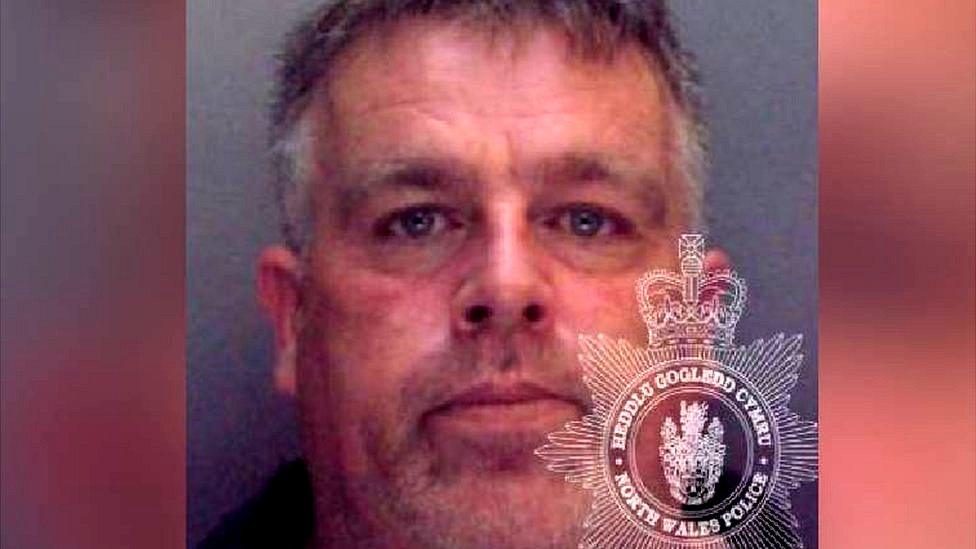
- Published24 February 2020

- Published28 February 2020
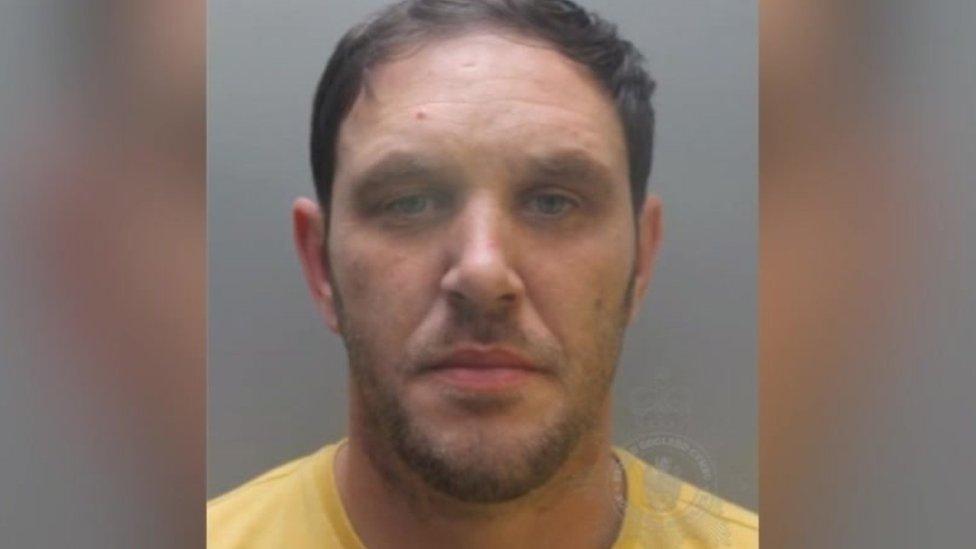
- Published24 February 2020
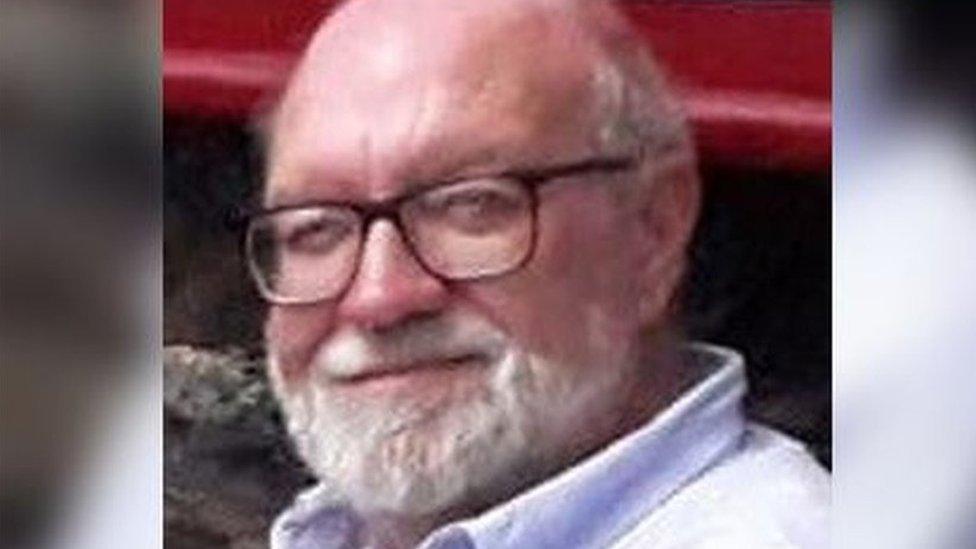
- Published3 February 2020

- Published15 May 2019
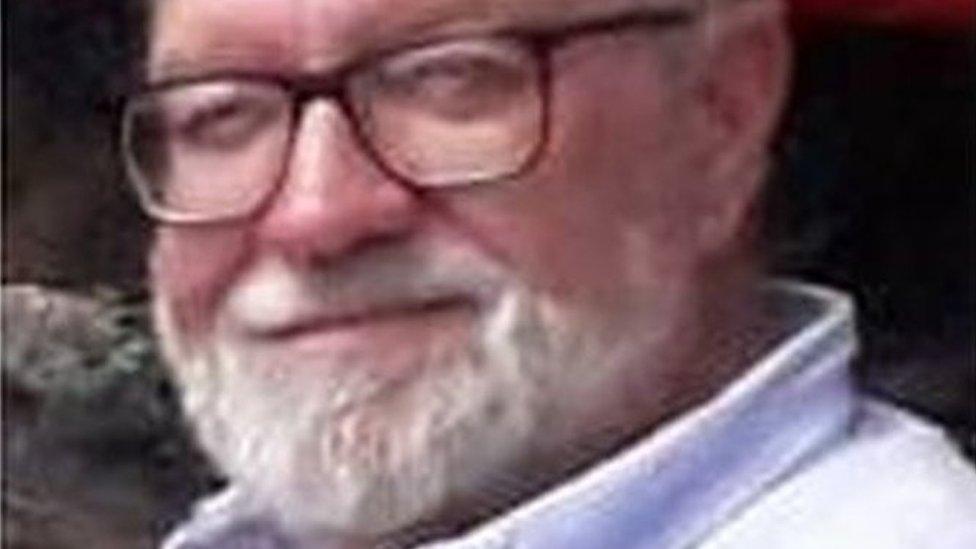
- Published11 May 2019
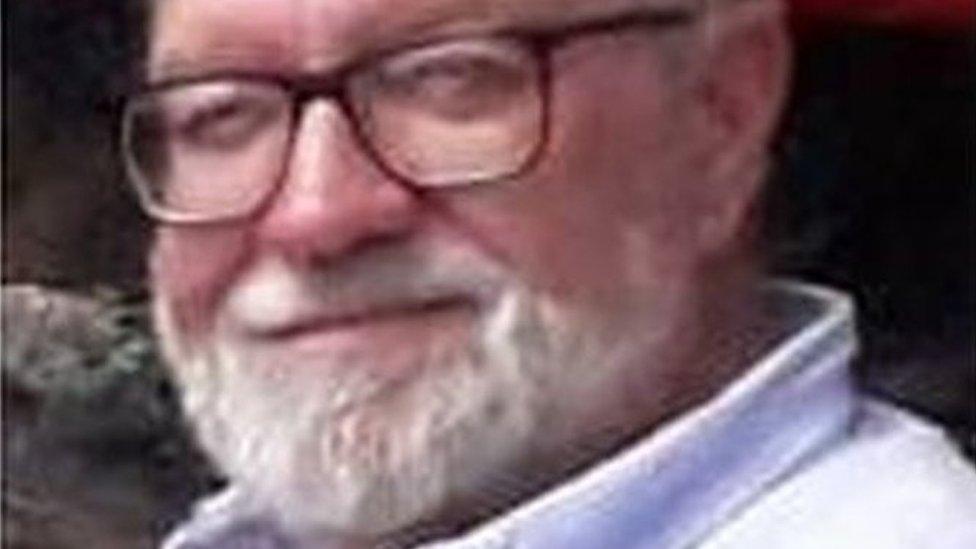
- Published20 April 2019

- Published19 April 2019
